
Oscar Greeley Clendenning Hammerstein II was an American lyricist, librettist, theatrical producer, and director in musical theater for nearly 40 years. He won eight Tony Awards and two Academy Awards for Best Original Song. Many of his songs are standard repertoire for vocalists and jazz musicians. He co-wrote 850 songs.
Lyrics are words that make up a song, usually consisting of verses and choruses. The writer of lyrics is a lyricist. The words to an extended musical composition such as an opera are, however, usually known as a "libretto" and their writer, as a "librettist". Rap songs and grime contain rap lyrics that are meant to be spoken rhythmically rather than sung. The meaning of lyrics can either be explicit or implicit. Some lyrics are abstract, almost unintelligible, and, in such cases, their explication emphasizes form, articulation, meter, and symmetry of expression.

Lorenz Milton Hart was an American lyricist and half of the Broadway songwriting team Rodgers and Hart. Some of his more famous lyrics include "Blue Moon"; "The Lady Is a Tramp"; "Manhattan"; "Bewitched, Bothered and Bewildered"; and "My Funny Valentine".

Andrew Lloyd Webber, Baron Lloyd-Webber, is an English composer and impresario of musical theatre. Several of his musicals have run for more than a decade both in the West End and on Broadway. He has composed 21 musicals, a song cycle, a set of variations, two film scores, and a Latin Requiem Mass.
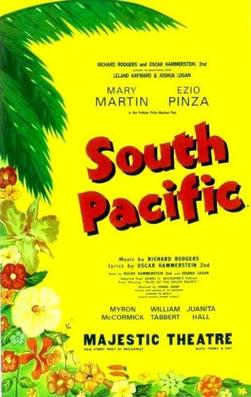
South Pacific is a musical composed by Richard Rodgers, with lyrics by Oscar Hammerstein II and book by Hammerstein and Joshua Logan. The work premiered in 1949 on Broadway and was an immediate hit, running for 1,925 performances. The plot is based on James A. Michener's Pulitzer Prize–winning 1947 book Tales of the South Pacific and combines elements of several of those stories. Rodgers and Hammerstein believed they could write a musical based on Michener's work that would be financially successful and, at the same time, send a strong progressive message on racism.
In a musical composition, a chord progression or harmonic progression is a succession of chords. Chord progressions are the foundation of harmony in Western musical tradition from the common practice era of Classical music to the 21st century. Chord progressions are the foundation of popular music styles, traditional music, as well as genres such as blues and jazz. In these genres, chord progressions are the defining feature on which melody and rhythm are built.
Claude-Michel Schönberg is a French record producer, actor, singer, songwriter, and musical theatre composer, best known for his collaborations with lyricist Alain Boublil. Major works include La Révolution Française (1973), Les Misérables (1980), Miss Saigon (1989), Martin Guerre (1996), The Pirate Queen (2006), and Marguerite (2008).
The Song of the Forests, Op. 81, is an oratorio by Dmitri Shostakovich composed in the summer of 1949. It was written to celebrate the forestation of the Russian steppes following the end of World War II. The composition originally included texts by Yevgeny Dolmatovsky praising Joseph Stalin as the "great gardener"; these references were eliminated after his death. Premiered by the Leningrad Philharmonic under Yevgeny Mravinsky on 15 November 1949, the work was well received by the government, earning the composer a Stalin Prize the following year.

42nd Street is a 1933 American pre-Code musical film directed by Lloyd Bacon, with songs by Harry Warren (music) and Al Dubin (lyrics). The film's numbers were staged and choreographed by Busby Berkeley. It stars an ensemble cast of Warner Baxter, Bebe Daniels, George Brent, Ruby Keeler, Dick Powell and Ginger Rogers.

"Edelweiss" is a show tune from the 1959 Rodgers and Hammerstein musical The Sound of Music. It is named after the edelweiss, a white flower found high in the Alps. The song was created for the 1959 Broadway production of The Sound of Music, as a song for the character Captain Georg von Trapp. In the musical, Captain von Trapp and his family sing this song during the concert near the end of Act II. It is a statement of Austrian patriotism in the face of the pressure put upon him to join the navy of Nazi Germany following the Anschluss. It is also Captain von Trapp's subliminal goodbye to his beloved homeland, using the flower as a symbol of his loyalty to Austria. In the 1965 film adaptation, the song is also sung by the Captain earlier in the film when he rediscovers music with his children.
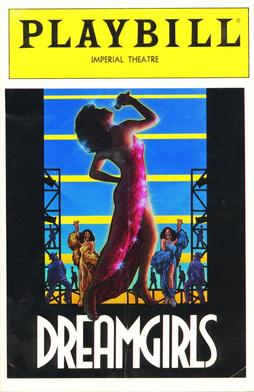
Dreamgirls is a Broadway musical, with music by Henry Krieger and lyrics and book by Tom Eyen. Based on the show business aspirations and successes of R&B acts such as The Shirelles, James Brown, Jackie Wilson, and others, but closely follows the story of The Supremes as the musical follows the story of a young Black female singing trio from Chicago, Illinois called "The Dreams", who become music superstars.
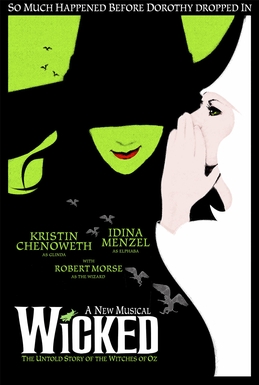
Wicked is a musical with music and lyrics by Stephen Schwartz and a book by Winnie Holzman. It is a loose adaptation of the 1995 Gregory Maguire novel Wicked: The Life and Times of the Wicked Witch of the West, which is in turn based on L. Frank Baum's 1900 novel The Wonderful Wizard of Oz and its 1939 film adaptation. The musical is told from the perspective of two witches, Elphaba and Galinda, before and after Dorothy's arrival in Oz. The story explores the complex friendship between Elphaba and Galinda. Their relationship is tested by their contrasting personalities, conflicting viewpoints, shared love interest, reactions to the corrupt rule of the Wonderful Wizard, and ultimately, Elphaba's tragic fall.
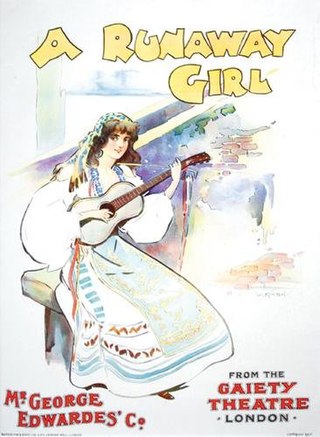
A Runaway Girl is an Edwardian musical comedy in two acts written in 1898 by Seymour Hicks and Harry Nicholls. The composer was Ivan Caryll, with additional music by Lionel Monckton and lyrics by Aubrey Hopwood and Harry Greenbank. It was produced by George Edwardes at the Gaiety Theatre, London, opening on 21 May 1898 and ran for a very successful 593 performances. It starred Hicks's wife, Ellaline Terriss and the comic actor Edmund Payne.
"Seasons of Love" is a song from the 1996 Broadway musical Rent, written and composed by Jonathan Larson. The song starts with an ostinato piano motif, which provides the harmonic framework for the cast to sing "Five hundred twenty-five thousand, six hundred minutes". The main instruments used throughout the song are piano, vocals, guitar, organ, bass and drums.
"The Sound of Music" is the title song from the musical of the same name that premiered in 1959. It was composed by Richard Rodgers with lyrics written by Oscar Hammerstein II. The song introduces the character of Maria, a young novice in an Austrian abbey.
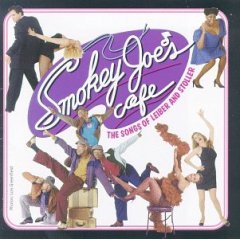
Smokey Joe's Cafe is a musical revue showcasing 39 pop standards, including rock and roll and rhythm and blues songs written by songwriters Jerry Leiber and Mike Stoller. The Original Broadway cast recording, Smokey Joe's Cafe: The Songs of Leiber and Stoller, won a Grammy Award in 1997.
"The Man Comes Around" is the title track from Johnny Cash's American IV: The Man Comes Around, released in 2002. It was written several years prior to the release of the album; however, Cash updated it for the album. It is one of the last songs Cash wrote before his death. Both sung and spoken, the song makes numerous Biblical references, especially to the Book of Revelation.

"Circle of Life" is a song from Disney's 1994 animated feature film The Lion King. Composed by English musician Elton John, with lyrics by Tim Rice, the song was performed by Carmen Twillie and Lebo M as the film's opening song. In an interview, Rice said he was amazed at the speed with which John composed: "I gave him the lyrics at the beginning of the session at about two in the afternoon. By half-past three, he'd finished writing and recording a stunning demo." John sang a pop version of the song with the London Community Gospel Choir, which was included in the film's soundtrack and made into a music video.

Risa Oribe, known professionally as Lisa, is a Japanese singer and songwriter from Seki, Gifu, signed to Sacra Music under Sony Music Artists.
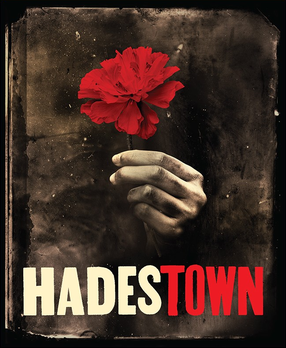
Hadestown is a sung-through musical with music, lyrics, and book by Anaïs Mitchell. It tells a version of the ancient Greek myth of Orpheus and Eurydice. Eurydice, a young girl looking for something to eat, goes to work in a hellish industrial version of the Greek underworld to escape poverty and the cold, and her poor singer-songwriter lover Orpheus comes to rescue her.












